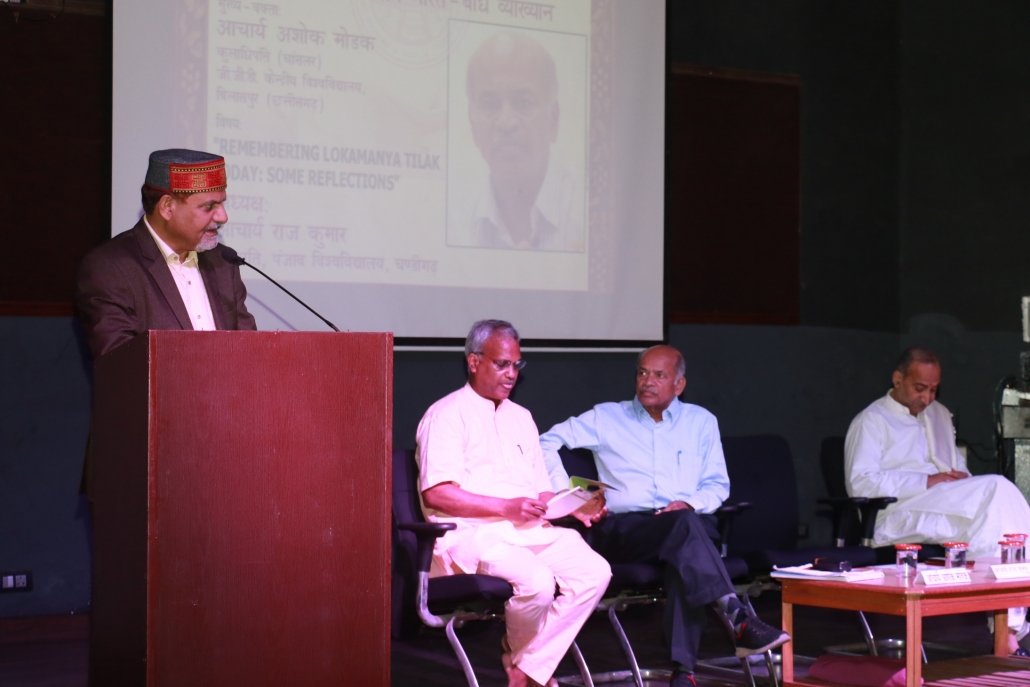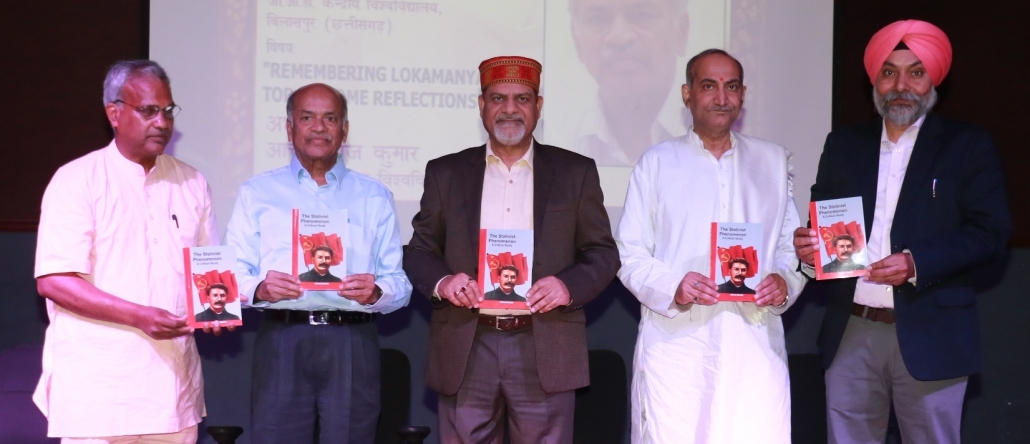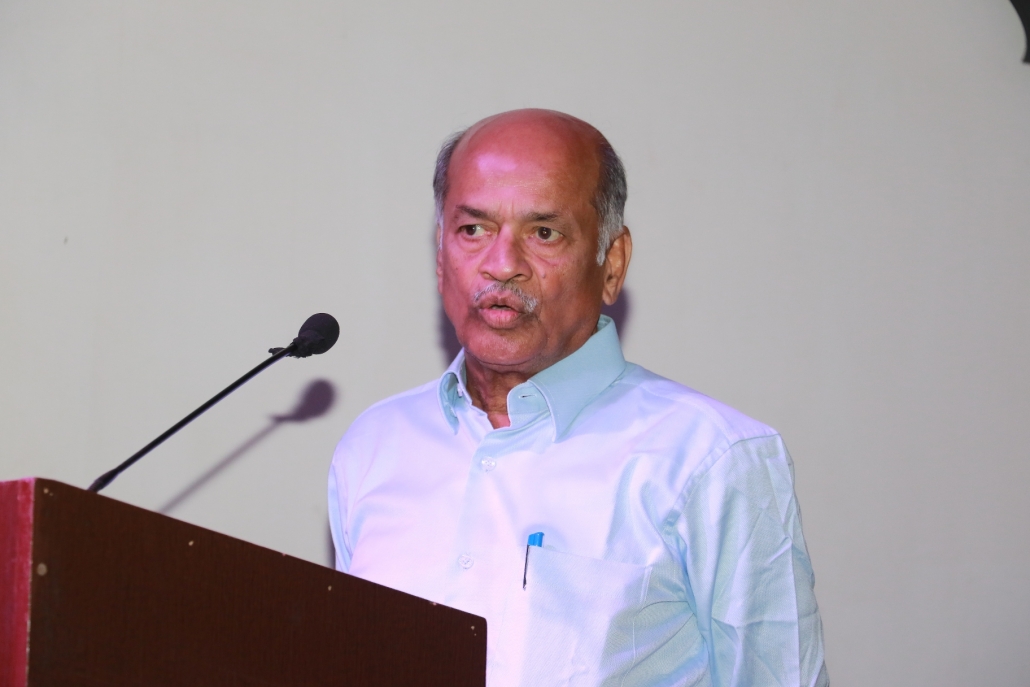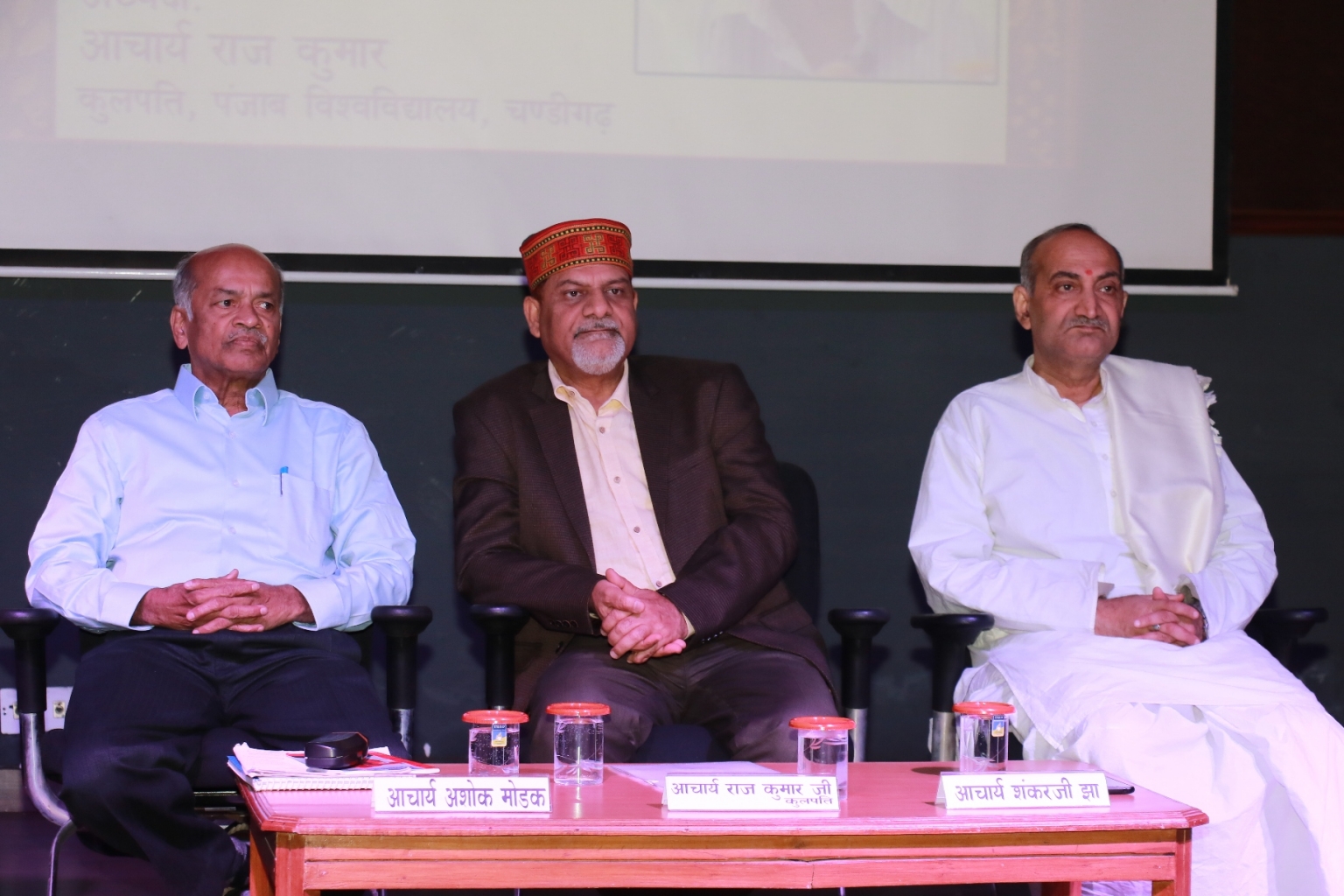Korel, Chandigarh March 5, 2020
Professor Ashok Modak, National Research Professor and Chancellor, GGD Central University Bilaspur, Chhattisgarh, delivered the PU Bharat- Bharat Bodh Vyakhyan on “ Remembering Lokamanya Tilak Today: Some Reflections”, here today.
Prof Raj Kumar, the Vice Chancellor, PU Chandigarh presided over the Bharat Bodh Vyakhyan.

Prof Raj Kumar, in his Presidential Address, underlined the perennial significance of the vision of Lokamanya Tilak for the youth of today in the frightening contexts of loss of moral values, corruption, anti- India discourses, communalism, consumerism and terrorism.
A monograph, written by Prof Ashok Modak, – “ The Satalinist Phenomenon: A Critical Study” ( published by the Publication Bureau, P U Chandigarh) was also released by PU VC.

While welcoming the guests, Prof Sudhir Kumar, Coord of PU Colloquium Committee, emphaised the need not to uncritically accept the such imported concepts as “ nation/ nationalism, modernity “ as India does not offers not translated or morphed versions of western concepts, it offers alternatives and its own concepts rooted in Indic wisdom traditions. Prof Ashok Modak in his seminal speech highlighted different hitherto ignored but interconnected aspects of Lokamanya Tilak’s life and work- a great patriot, a great nationalist, a great thinker, a great karmayogi and a great social reformer, an exemplar of selfless service and sacrifice. Prof Modak , in his lecture, underscored how Tilak ji invested the cultural vocabulary ( particularly such loaded words as “ Swaraj” and “ Swadeshi “) with new meanings and used them for unifying the prople of India against their collective struggle for freedom from the British colonial rule as well as all other forms or injustice. To Tilak ji, “ swaraj” and “ swadeshi” were not mere slogans to arouse the masses. He was the first to realise that these concepts were well- entrenched in the collective consciousness but remained in the dormant form. Lokamanya Tilak ji awakened the masses of India , about the dangers of uncritically accepting “ western modernity” as “Indian modernity” and gave a clarion call to be “ Karmayogis” – full of selfless service and sacrifice.

Prof Modak said , quoting extensively from Lokamanya Tolak’s writings, that “ it is only from India’s sanatan – dharma ( eternally relevant morality or ethical duty )that a space and time – specific “ newness or modernity “ can manifest itself , else the imposed western modernity would make the Indians mimics and imposters ! He said that it was Lokamanya Tilak who made the people of India realise the holistic meanings of “Swaraj” and “ Swadeshi “ that implied the attainment of true freedom from all kinds of bondage- political, social, economic and cultural. As a social- cultural activist, his nationalistic writings published in the two papers founded by him- “ Kesari” and “ Maharatta” , his speeches delivered during 1906-1919 on different occasions on such topics as education, local self-administration, promotion of all Indian languages, national integration, anti- colonialism, the meanings of the Gita , his role in starting the mass- celebrations of “ Ganesh Utsav “ and “ Shivaji Jayanti”, his founding of “ Deccan Educational Society,” etc bear ample proof of his greatness as a thinker, institution- builder and freedom fighter.
Prof Ashok Modak also pointed out the fact that Lokamanya Tilak ( as also Lala Lajpat Rai and Bipin Chandra Pal) was dubbed and presented as a “ communal nationalist” in the ideologically- driven historiography of modern India. Prof Modak asked the teachers as well as researchers in social sciences and cultural studies to conduct further studies on the hitherto unexplored and ignored aspects of Lokamanya Tilakji’s vision, life and work.
Those present on the occasion included Prof Shankar ji Jha, Dean University Instruction, Prof Karamjeet Singh, Registrar, Prof Nandita Singh, Dean International Students, Prof. (Retd) Romesh Pandey and Prof Chaman Lal Gupta, the Vice Chairman, Indian Institute of Advanced Study , Shimla, Prof Gurpal Singh, Prof Harsukhjit Kaur, Prof Keshav Malhotra, faculty and students of the University.




